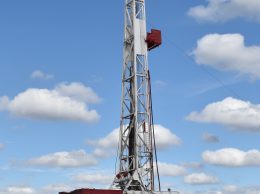Dole shares down after earnings drop
IN THIS ARTICLE
- Agribusiness Topic
- Jorge Mercado Author
By Jorge Mercado Friday, December 3rd, 2021
Westlake Village-based Dole saw its stock fall 2.5% on Dec. 3 after the company revealed a big dip in earnings for the third quarter of fiscal year 2021-22.
Dole, which is dually based in Westlake Village and Ireland and is one of the largest fruit and vegetable producers in the world, saw adjusted net income drop 88.1% from a year earlier, to $3.7 million, or 4 cents per share. The company attributed the decline to weak markets in the company’s fresh packed vegetables business and inflationary headwinds in its value-added salad segment.
“Despite the benefits of our integrated supply chain, we’ve not been immune from industry-wide cost inflation, which emerged earlier this year,” Rose Byrne, Dole’s CEO, said during the company’s Dec. 3 earnings call.
Supply chain issues also played a role in the company’s adjusted earnings dropping 35.4% year-over-year, to $59.7 million in the third quarter of this year.
“Throughout the year we have endured significant cost impact on both our sourcing base and supply chain following the November 2020 hurricanes in Guatemala and Honduras,” Johan Lindén, Dole’s chief operating officer, said during the earnings call.
Dole did see revenue rise slightly in the third quarter of 2021, from $2.31 billion in 2020 to $2.317 billion in 2021.
The increase was driven by growth in the company’s fresh vegetables and diversified fresh produce segments.
Fresh vegetables generated $320.5 million in the third quarter of 2021, up 3% from the second quarter of 2021. That growth in revenue was offset, however, by a drop in the fresh fruit segment, which fell to $682.1 million, a decrease of 4.2% from the second quarter of 2021, due to lower volume and prices in Europe.
“In the Fresh Fruit and Fresh Vegetables division, which represent 45% of our pro forma revenues, we typically have longer-term contracts in place, and so we have needed to address the current issues proactively,” Lindén said regarding the inflationary and supply chain issues.
“In that context, we have been pleased with the response from our customers to the price increases that we have looked for and we’re progressing well towards having the pricing in place to offset current inflationary pressures in full, in 2022.”
Dole’s stock dropped 2.5% on Dec. 3 to close at $12.82. The stock has dropped 19.8% since an initial public offering on July 30.
It was the third IPO for Dole, which was most recently publicly traded from 2009 until 2013, when then-Chairman and CEO David Murdock bought all of the shares for $1.2 billion. Murdock had already taken Dole private once before, in 2003.
According to Byrne, Dole received net proceeds of $398.9 million from its July-IPO, which the company used to restructure its debt.
“Concurrently with the IPO we also successfully completed a $1.44 billion refinancing package, providing us with a well-structured liquidity to support our continued growth,” Byrne said.
Dole ended the quarter with cash and cash equivalents worth $234.2 million. The company also carries a net debt of $1.1 billion.











